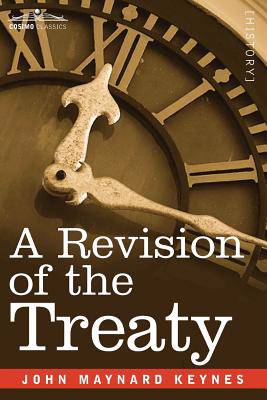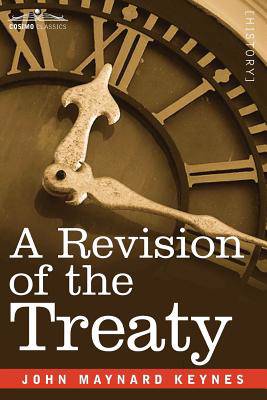
- Afhalen na 1 uur in een winkel met voorraad
- Gratis thuislevering in België vanaf € 30
- Ruim aanbod met 7 miljoen producten
- Afhalen na 1 uur in een winkel met voorraad
- Gratis thuislevering in België vanaf € 30
- Ruim aanbod met 7 miljoen producten
Zoeken
Omschrijving
OF INTEREST TO: readers of 20th-century history, students of economics I do not admit error in having based The Economic Consequences of the Peace on a literal interpretation of the Treaty of Versailles, or in having examined the results of actually carrying it out. I argued that much of it was impossible; but I do not agree with many critics, who held that, for this very reason, it was also harmless. -from "The State of Opinion" Almost immediately after its ratification, it became clear that the Treaty of Versailles, ending World War I, was at least partly unworkable-and in this 1922 work, famed economist John Maynard Keynes dissected the problems he saw as the Treaty was being put into practice. In what he called a sequel to his 1919 book The Economic Consequences of the Peace, Keynes discusses: . the debate over German reparations . the legality of occupying Germany east of the Rhine . the division of reparations among the allies . how to best handle inter-ally debt . and more... British economist JOHN MAYNARD KEYNES (1883-1946) also wrote The End of Laissez-Faire (1926), The Means to Prosperity (1933), and General Theory of Employment, Interest and Money (1936). ALSO FROM COSIMO: Keynes's A Treatise on Probability and Indian Currency and Finance
Specificaties
Betrokkenen
- Auteur(s):
- Uitgeverij:
Inhoud
- Aantal bladzijden:
- 236
- Taal:
- Engels
Eigenschappen
- Productcode (EAN):
- 9781596058941
- Verschijningsdatum:
- 1/09/2006
- Uitvoering:
- Paperback
- Formaat:
- Trade paperback (VS)
- Afmetingen:
- 152 mm x 229 mm
- Gewicht:
- 349 g

Alleen bij Standaard Boekhandel
+ 43 punten op je klantenkaart van Standaard Boekhandel
Beoordelingen
We publiceren alleen reviews die voldoen aan de voorwaarden voor reviews. Bekijk onze voorwaarden voor reviews.







